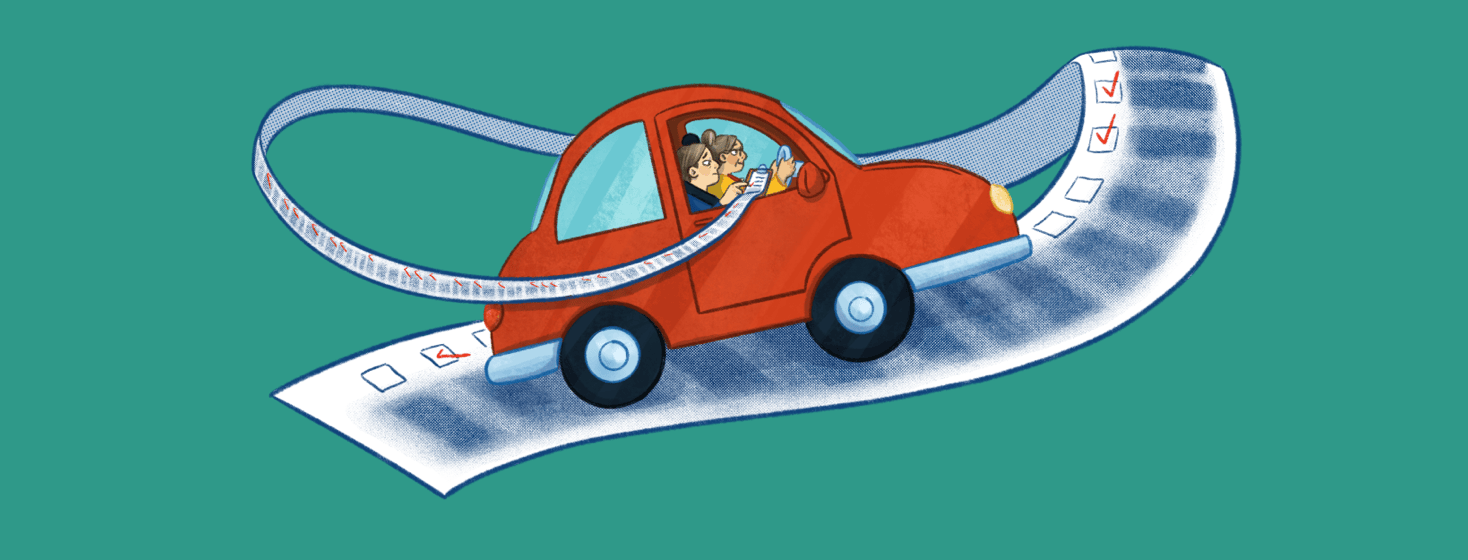Is It Safe for My Loved One With Alzheimer's to Drive?
So much of navigating caring for someone with dementia is balancing safety and independence. Asking someone to stop driving is a frightening, mountainous request. To many older adults, it represents a major shift toward reducing their freedom and autonomy.
I wish there was a checklist for determining whether or not it's safe for your loved one to continue driving. But since there's not, the solution is much like the other aspects of the disease. When you see it, you know it.
Recognizing the changes
Before Mom was diagnosed, we started noticing the earliest signs of dementia. She would be in the middle of a task, then forget what she was doing and start something new. She started getting lost in a town she'd lived in her entire life. These were new symptoms of confusion and forgetfulness we had never seen before.
Mom has always been at the forefront of technology, and her smartphone helped aid her in some of these slips. She'd set alarms to make sure she didn't forget an appointment. She used GPS navigation every time she was in the car, so when she forgot where family members lived, it was still easy to get around.
Can someone with Alzheimer's drive?
But as a passenger in the car with Mom, it was concerning. She was distracted by her phone and slow to respond to quick changes on the road. In addition, my Mom frequently drove her grandchildren, and we were all concerned.
One day Mom got in an accident at a busy intersection. Thankfully she wasn't injured, and though it was proven to be the other driver's fault, we took note and knew something needed to change.
Enlisting a professional
I pictured how to break this to my Mom. I mean, imagine a family member comes up to you and tells you to stop driving because they don't feel safe with you behind the wheel anymore. I was not excited about dropping that bombshell on Mom, so I enlisted a neutral third-party professional to do it instead.
At her next appointment, I brought it up and asked her doctor about driving safety. He asked my sister and me directly, "Do you feel safe being in the car when she's driving?" We both said no, and after further discussion, he suggested she stop driving immediately.
Concerns for Mom's safety
Mom was indignant and defensive, especially because she deals with anosognosia, a lack of awareness of her disease or deficits. After the appointment, Mom still wasn't ready to stop driving. She felt everything was "fine," and she had no issues.
Our concerns were still there, and I couldn't help but think about the terrible possibility that Mom could hurt herself or someone else on the road. So our family decided to do 2 things next.
First, we decided to seek more advanced neurological testing with a specialist to get a definitive diagnosis. We also wanted Mom to take a driving assessment with a professional.
And then another professional
There are lots of driving assessments that can help determine if a person can travel safely. We opted not to go through the behind-the-wheel test with the state DMV first, as that could be stressful and humiliating to my Mom and dangerous for everyone involved.
We were recommended to a memory center that did driving simulations specifically for older adults. Through neuropsychological tests on a computer, they measured the likelihood that someone would pass or fail a behind-the-wheel test at the DMV.
My Mom's results showed that there was a very high likelihood that she would fail a DMV test. This was another professional who recommended that she stop driving.
Big changes for everyone
Thankfully, my Mom accepted the driving assessment results and stopped driving. She still didn't feel that anything was wrong with her neurologically. But because it was early on in her disease, the results stuck with her, and we didn't have to take away her keys or remind her not to drive.
On the other hand, it was a huge change for our family. My Mom had a very busy, involved life, and activities or exercise classes to go to every day. She loved to go shopping and run errands, too. We tried to help her feel as independent as possible by throwing ourselves into coordinating full-time transportation for her so she never felt she was stuck at home. It was more than one person could handle, so we found friends and extended family members to help.
A few years later, the family decided to sell her car. It had stopped working well, and she was ready to part with it. She canceled her car insurance and changed her driver's license to a state-issued ID card.
Our new normal
Even today, there is a lot of juggling and scheduling to accommodate Mom not being able to drive, which is never easy. But my Mom has been able to keep up the life she loves and maintain her independence at the same time.
I wish there were a clear guidebook on navigating this big change in our loved ones' lives. Every person living with dementia is different, and it will be different for every family.
What I do know is that even if it's not easy, we will get through it. Your loved one will get used to the new normal. And you can sleep at night knowing you are helping keep your loved one and others safe.

Join the conversation